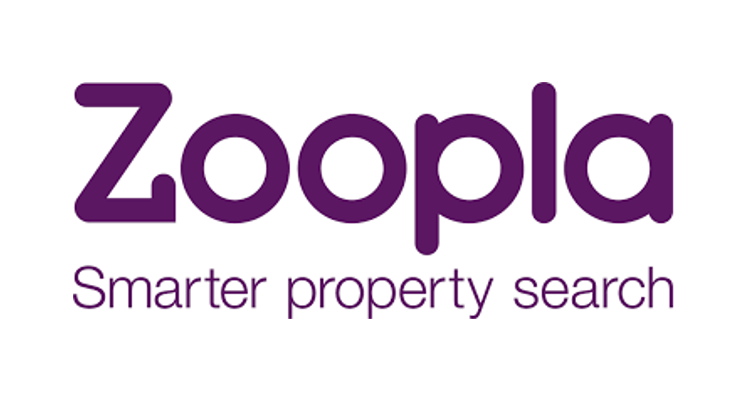BREAKING PROPERTY NEWS – 14/07/2022
Daily bite-sized proptech and property news in partnership with Proptech-X.
RICS: Demand and sales continue to cool although pricing trends remain relatively firm at this stage
- New buyer enquiries indicator moves further into negative territory
- New instructions remain more or less fl at while sales soften slightly
- House prices still rising across all parts of the UK, albeit the pace of growth appears to be easing somewhat
The June 2022 RICS UK Residential Survey results again point to a softening in demand at the headline level. Nevertheless, with new instructions remaining generally fl at over recent months, tight supply conditions are still underpinning house prices. Indeed, for the time being at least, respondents continue to cite an increase in house prices across all parts of the UK, even if the pace of growth looks to be easing to a certain degree.
At the national level, the latest net balance for new buyer enquiries slipped to -27%, down from a reading of -9% previously. As such, this marks the second consecutive month in which the survey’s headline measure of demand has been in negative territory. Interestingly, the feedback on buyer enquiries is a little more resilient in London compared most other parts of the UK, with the capital exhibiting a net balance of +7% in June.
Meanwhile, the volume of sales agreed over the month dipped slightly at the UK-wide level, evidenced by a net balance of -13% being returned in June (a little softer than a fi gure of -5% posted in the previous iteration of the survey). Looking ahead, near-term sales expectations are now marginally negative, with a net balance of -9% of respondents anticipating a fall in transactions over the coming three months. Further out, twelve-month sales expectations are also negative, delivering a net balance of -21% (albeit this is broadly in-line with last month’s reading of -24%).
Looking at the feedback around new instructions, the latest net balance of -1% remains consistent with a more or less fl at trend across the UK in aggregate. Moreover, survey participants are also reporting market appraisals to be broadly unchanged relative to the picture twelve months ago, suggesting the tight supply backdrop is unlikely to shift drastically in the immediate future.
With available stock on the market still limited, house prices continue to drift higher despite the recent cooling in demand. In aggregate, a net balance of +65% of respondents noted an increase in house prices over the latest survey period. Although this is down slightly on a recent high of +79% back in April, the latest reading is still indicative of a solid pace of house price infl ation and comfortably above the long-run average of +13%. Disaggregating the data shows that Northern Ireland, Yorkshire & the Humber and the South East all continue to see particularly strong house price growth.
Rightmove: Rents grow at fastest annual rate in 16 years
Average asking rents outside of London hit another new record of £1,126 per calendar month (pcm), rising 3.5% from last quarter and by 11.8% compared to last year.
This increase in average asking rents means that rents outside of London are rising at the highest annual rate Rightmove has ever recorded in 16 years of reporting. Rents have now risen by 19% (+£177) since the pandemic started two years ago.
By contrast, it took eight years pre-pandemic to reach the same level of growth, illustrating the rapid rise in asking rents since the start of the pandemic. This quarter’s 3.5% jump is the second highest quarterly rise in ten years.
Rents in the capital also continue to rise as London reaches a new record average asking rent of £2,257 pcm this quarter. Annual growth in asking rents in London is now at 15.8%, the fastest ever rate of any region.
Rising rents continue to be driven by a shortage of available rental stock, with low volumes struggling to meet high tenant demand over the past two years.
Although there is still a shortage of available homes to rent, there continues to be signs of this improving. The number of new rental listings is up 8% since the start of the year. June saw the highest number of new rental listings coming to market of any month this year so far.
Despite these encouraging signs, available rental stock is still down 26% compared to last year’s levels, while demand is up 6%, which means competition between tenants remains extremely fierce.
As high tenant demand continues to overtake last year’s exceptional levels, and available rental stock is slow to recover, we now expect average asking rent growth to reach 8% by the end of the year, up from 5% predicted at the start of the year.
Affordability analysis from Rightmove shows that due to historically low interest rates, average mortgage payments on properties with two-bedrooms or fewer have risen by 13% in the last ten years, while equivalent rental payments on the same properties have risen by 40%.
“The story of the rental market continues to be one of high tenant demand but not enough available homes to meet that demand.”
Despite challenges such as navigating legislation changes and potential updates to EPC requirements and more landlords are planning to expand their portfolio than reduce it, a sign of confidence in the market.
A third (34%) of landlords recently surveyed said they plan to expand their portfolio during the next 12 months compared with 11% who plan to reduce the number of homes they rent out.
Rightmove’s Director of Property Science Tim Bannister said: “The story of the rental market continues to be one of high tenant demand but not enough available homes to meet that demand. Last year we saw exceptional numbers of tenants looking to move and this year we have seen no let-up in this trend. Whilst stock levels are beginning to improve, with June seeing the highest number of new rental listings coming to market so far this year, the wide gap that has been created between supply and demand over the last two years will take time to narrow. Until then, this imbalance will continue to support asking rent growth. This has led to our revised forecast of a 8% rise in asking rents by the end of the year up from 5%.”
Agents’ Views
Nicola Fleet-Milne, CEO at FleetMilne in Birmingham, said: “Q2 2022 has seen a sharp increase in rental prices in Birmingham City Centre; a hangover of the stifled growth throughout the pandemic. Couple this with a lack of good quality stock, and the result is an applicant base looking for homes 6-10 weeks in advance of their need. This is a huge increase from 2021 where applicants typically searched around 4-6 weeks in advance of their need.
“Older stock is falling dramatically behind the standards of the new units coming through, and whilst initially, they may demand similar rents, as more developments complete, the older stock may be relegated to a markedly lower price band.”
Richard Davies, MD of Chestertons, said: “Throughout Q2 of this year, London’s rental market has seen continuous growth in tenant enquiries as well as in the number of tenants extending their rental agreements. Those who secured a property at a discounted rental rate during the pandemic are keen to hold on to this deal as long as possible, particularly in the face of rising living costs. With the return of office workers, international students and corporate tenants alike, London’s rental market has also seen an unprecedented corporate demand that is outstripping supply. This has created an extremely competitive market for tenants where many offer landlords over asking price in order to secure a property.”









